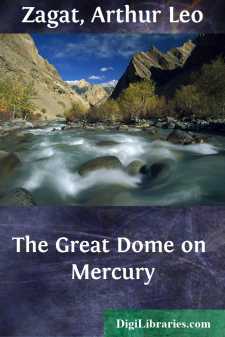Categories
- Antiques & Collectibles 13
- Architecture 36
- Art 48
- Bibles 22
- Biography & Autobiography 813
- Body, Mind & Spirit 142
- Business & Economics 28
- Children's Books 14
- Children's Fiction 11
- Computers 4
- Cooking 94
- Crafts & Hobbies 4
- Drama 346
- Education 46
- Family & Relationships 57
- Fiction 11829
- Games 19
- Gardening 17
- Health & Fitness 34
- History 1377
- House & Home 1
- Humor 147
- Juvenile Fiction 1873
- Juvenile Nonfiction 202
- Language Arts & Disciplines 88
- Law 16
- Literary Collections 686
- Literary Criticism 179
- Mathematics 13
- Medical 41
- Music 40
- Nature 179
- Non-Classifiable 1768
- Performing Arts 7
- Periodicals 1453
- Philosophy 64
- Photography 2
- Poetry 896
- Political Science 203
- Psychology 42
- Reference 154
- Religion 513
- Science 126
- Self-Help 84
- Social Science 81
- Sports & Recreation 34
- Study Aids 3
- Technology & Engineering 59
- Transportation 23
- Travel 463
- True Crime 29
The Foreign Hand Tie
by: Barberis
Categories:
Description:
Excerpt
From Istanbul, in Turkish Thrace, to Moscow, U.S.S.R., is only a couple of hours outing for a round trip in a fast jet plane—a shade less than eleven hundred miles in a beeline.
Unfortunately, Mr. Raphael Poe had no way of chartering a bee.
The United States Navy cruiser Woonsocket, having made its placid way across the Mediterranean, up the Aegean Sea, and through the Dardanelles to the Bosporous, stopped overnight at Istanbul and then turned around and went back. On the way in, it had stopped at Gibraltar, Barcelona, Marseilles, Genoa, Naples, and Athens—the main friendly ports on the northern side of the Mediterranean. On the way back, it performed the same ritual on the African side of the sea. Its most famous passengers were the American Secretary of State, two senators, and three representatives.
Its most important passenger was Mr. Raphael Poe.
During the voyage in, Mr. Raphael Poe remained locked in a stateroom, all by himself, twiddling his thumbs restlessly and playing endless games of solitaire, making bets with himself on how long it would be before the ship hit the next big wave and wondering how long it would take a man to go nuts in isolation. On the voyage back, he was not aboard the Woonsocket at all, and no one missed him because only the captain and two other Navy men had known he was aboard, and they knew that he had been dropped overboard at Istanbul.
The sleek, tapered cylindroid might easily have been mistaken for a Naval torpedo, since it was roughly the same size and shape. Actually, it was a sort of hybrid, combining the torpedo and the two-man submarine that the Japanese had used in World War II, plus refinements contributed by such apparently diverse arts as skin-diving, cybernetics, and nucleonics.
Inside this one-man underwater vessel, Raphael Poe lay prone, guiding the little atomic-powered submarine across the Black Sea, past Odessa, and up the Dnieper. The first leg, the four hundred miles from the Bosporous to the mouth of the river, was relatively easy. The two hundred and sixty miles from there to the Dnepropetrovsk was a little more difficult, but not terribly so. It became increasingly more difficult as the Dnieper narrowed and became more shallow.
On to Kiev. His course changed at Dnepropetrovsk, from northeast to northwest, for the next two hundred fifty miles. At Kiev, the river changed course again, heading north. Three hundred and fifty miles farther on, at Smolensk, he was heading almost due east.
It had not been an easy trip. At night, he had surfaced to get his bearings and to recharge the air tanks. Several times, he had had to take to the land, using the caterpillar treads on the little machine, because of obstacles in the river.
At the end of the ninth day, he was still one hundred eighty miles from Moscow, but, at that point, he got out of the submarine and prepared himself for the trip overland. When he was ready, he pressed a special button on the control panel of the expensive little craft. Immediately, the special robot brain took over. It had recorded the trip upstream; by applying that information in reverse—a "mirror image," so to speak—it began guiding itself back toward Istanbul, applying the necessary corrective factors that made the difference between an upstream and a downstream trip....












